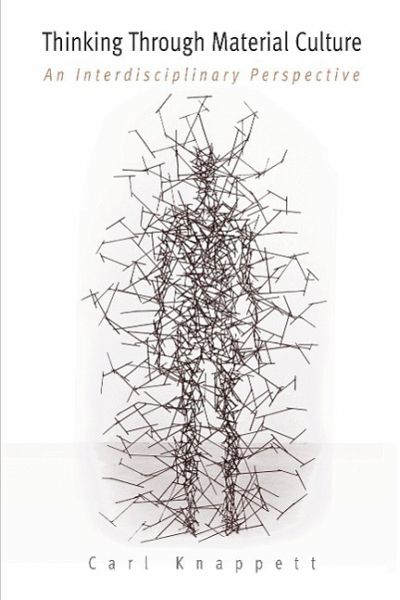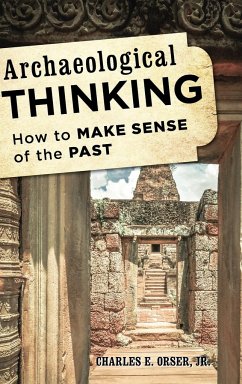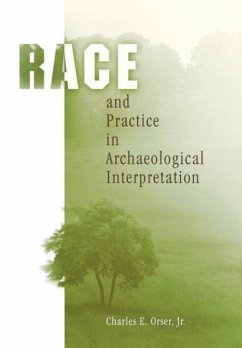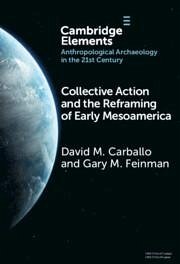
Thinking Through Material Culture
An Interdisciplinary Perspective
Versandkostenfrei!
Versandfertig in über 4 Wochen
54,99 €
inkl. MwSt.

PAYBACK Punkte
27 °P sammeln!
"The book is extremely well researched, drawing on the cognitive sciences, psychology, sociology, art history, philosophy, the neurosciences, semiotics, semiology, and, of course, archaeology and anthropology. . . . A path-breaking book."--Current Anthropology Material culture surrounds us and yet is habitually overlooked. So integral is it to our everyday lives that we take it for granted. This attitude has also afflicted the academic analysis of material culture, although this is now beginning to change, with material culture recently emerging as a topic in its own right within the social sc...
"The book is extremely well researched, drawing on the cognitive sciences, psychology, sociology, art history, philosophy, the neurosciences, semiotics, semiology, and, of course, archaeology and anthropology. . . . A path-breaking book."--Current Anthropology Material culture surrounds us and yet is habitually overlooked. So integral is it to our everyday lives that we take it for granted. This attitude has also afflicted the academic analysis of material culture, although this is now beginning to change, with material culture recently emerging as a topic in its own right within the social sciences. Carl Knappett seeks to contribute to this emergent field by adopting a wide-ranging interdisciplinary approach that is rooted in archaeology and integrates anthropology, sociology, art history, semiotics, psychology, and cognitive science. His thesis is that humans both act and think through material culture; ways of knowing and ways of doing are ingrained within even the most mundane of objects. This requires that we adopt a relational perspective on material artifacts and human agents, as a means of characterizing their complex interdependencies. In order to illustrate the networks of meaning that result, Knappett discusses examples ranging from prehistoric Aegean ceramics to Zande hunting nets and contemporary art. Thinking Through Material Culture argues that, although material culture forms the bedrock of archaeology, the discipline has barely begun to address how fundamental artifacts are to human cognition and perception. This idea of codependency among mind, action, and matter opens the way for a novel and dynamic approach to all of material culture, both past and present. Carl Knappett is a Lecturer in the Department of Archaeology at the University of Exeter.













